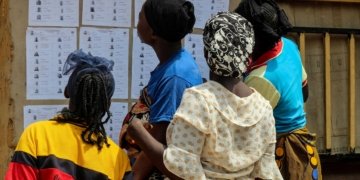Mama Nkechi lived in a cramped one-room apartment at the edge of our neighborhood, always surrounded by children. Some clung to her arms, others to her dress, and a few raced barefoot through the dust. When asked why she had so many kids, she would smile and say, “One day, one of them will make it big. Maybe even two if God smiles on us.”
This belief echoes across countless African households. Children represent an informal safety net, a long-term investment for families trapped in poverty. The logic appears simple: raise enough children, and at least one will succeed and lift everyone else. For those few who achieve that upward leap, the emotional and financial weight of extended responsibility often becomes overwhelming.
Mama Nkechi had ten children who survived past infancy. Against the odds, two of them rose above their circumstances, though their success carried an unexpected cost.
The Price of Success
Her eldest son, Emeka, became a doctor through determination and lucky breaks. Her fourth child, Kene, discovered coding and became a software engineer. These achievements should have been triumphs. Instead, they became quiet tragedies.
Once Emeka began practicing medicine, he became the family’s backbone. His salary funded his siblings’ tuition, his parents’ medical expenses, and daily needs. His siblings expected his support without question. When their father passed, Emeka paid for the funeral and stepped into the role of provider.
His own dreams were sidelined. With no savings and no chance to invest in his future, the strain affected his health. He turned to alcohol, developed liver problems, and left medicine to return to the village.
Kene stepped in when Emeka could no longer carry the weight. Soon he found himself trapped in the same cycle. Siblings continued having children, assuming he would help raise them. Eventually, he moved to Canada and cut ties with his family entirely.
This pattern repeats across Nigeria and much of Africa. A few individuals manage to rise above hardship, while the combined burden of extended family can either pull them down or push them away.
Africa’s Demographic Opportunity
There is a better path forward, beginning with recognizing Africa’s greatest asset: its youth. The continent’s population is growing rapidly, and by 2050, nearly half of all Africans will be under 25. This demographic surge could become a powerful economic engine if opportunities exist for employment, entrepreneurship, and innovation.
Currently, that potential is being wasted. In Nigeria, youth unemployment exceeds 40 percent. Young people face limited access to training, capital, and meaningful work. Some leave for opportunities abroad. Others stay feeling abandoned. The energy that should be building Africa’s future is too often lost to frustration.
From Individual Burden to Collective Opportunity
If Emeka and Kene had found support in industries shaped by youth-focused trade policies, their story might have unfolded differently. The African Continental Free Trade Area (AfCFTA) offers a framework to connect young Africans to regional value chains and emerging sectors. Through this platform, youth could launch small businesses, offer services across borders, and scale locally made products into continental markets.
The AfCFTA represents more than economics. It is an opportunity to break cycles of dependency. Instead of a single family member bearing the weight of everyone’s aspirations, success could be distributed more evenly across communities. With a continental market of more than one billion people, Africa can build industries that absorb its talent and create shared prosperity.
This transformation demands concrete investments. Africa needs better infrastructure: roads, ports, and broadband networks that connect markets. The continent must fix its credit systems, clarify trade policies, and build institutions that support entrepreneurs. African countries must prepare their young people to compete and collaborate across borders.
A Different Future
Mama Nkechi’s story does not have to repeat itself. Africa can become a place where success is shared rather than sacrificed, where progress lifts families instead of exhausting individual achievers. The demographic dividend is real, the continental market is taking shape, and the talent exists.
What remains is matching ambition with strategy and converting the mobility that drives young Africans abroad into something more rooted, growth that allows people to build their futures without leaving home behind.

Nwokedi Ifeanyi Josephis a Digital Communications Coordinator, Nigeria AfCFTA Coordination Office. Championing Africa’s Trade and Youth Empowerment.































